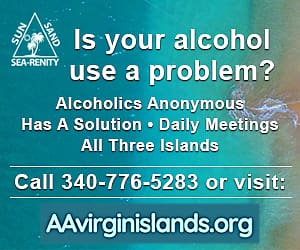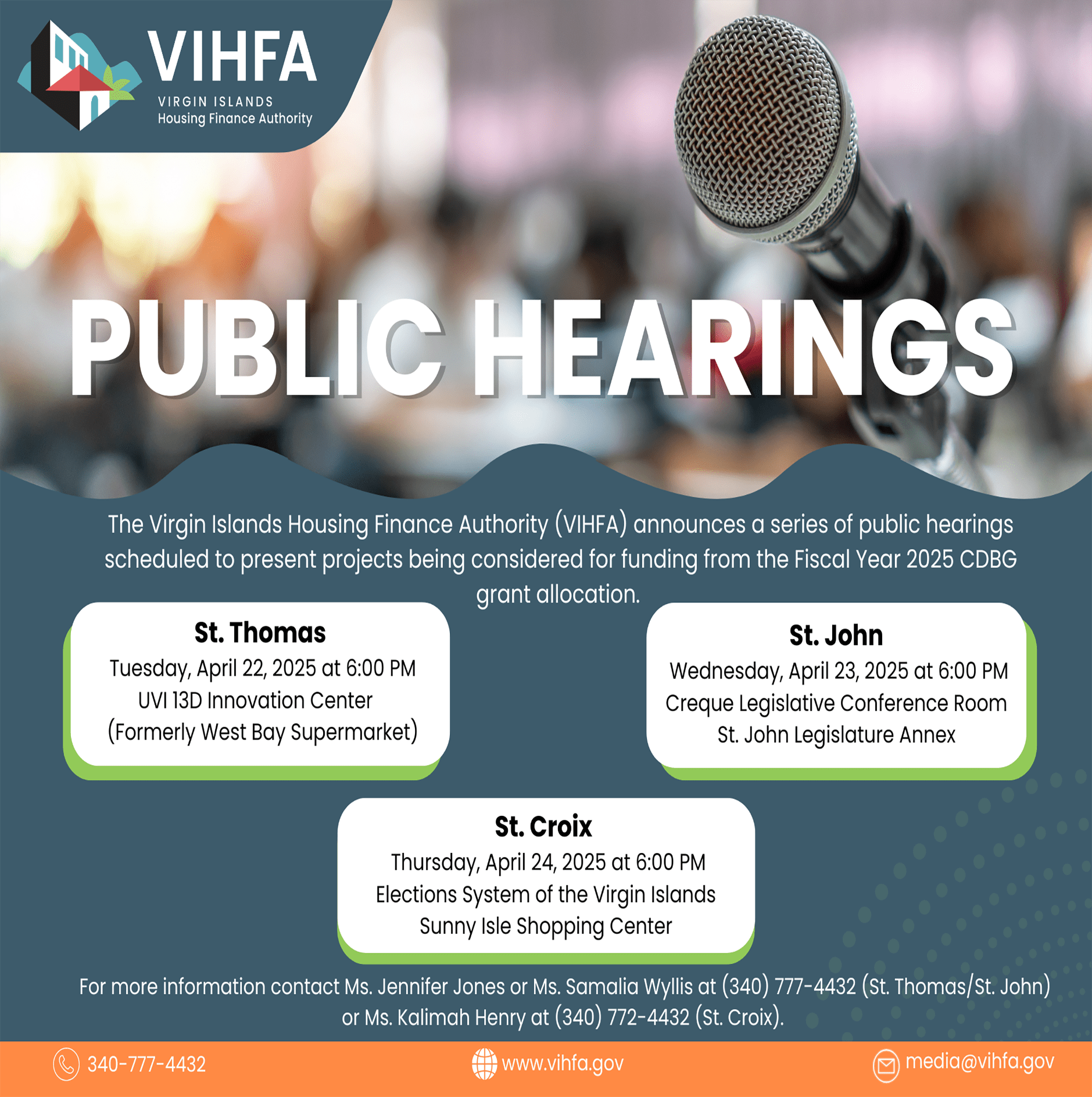
In a significant step toward sustainable development and community engagement, more than 100 residents of St. Thomas convened at Victor’s Hideout overlooking Crown Bay on Tuesday for a crucial town hall meeting.
This event was part of an ongoing series of discussions aimed at formulating a comprehensive land and water use plan to address pressing issues across the territory. The meeting brought together participants from various age groups, ranging from their late 20s to 60s, highlighting the community’s commitment to shaping a sustainable future.
The evening began with participants mingling and enjoying refreshments, including sandwiches, fruits, coffee and fruit punch. The atmosphere was one of anticipation and camaraderie, with notable community members in attendance, such as Sen. Marvin Blyden. The meeting commenced with an overview of the topics to be discussed, setting the stage for a productive and informative session.
The Department of Planning and Natural Resources team led the proceedings, with a particular focus on how the voting process would be conducted. Each table of participants was assigned two topics to discuss and vote on, using a color-coded system of green, yellow, and red to indicate their levels of agreement or opposition. For topics marked with yellow or red, participants were encouraged to elaborate on their reasons for opposition, ensuring that all voices and concerns were heard.

Throughout the evening, members of DPNR, including Commissioner Jean-Pierre “JP” Oriol, circulated among the tables, answering questions and taking detailed notes on the feedback provided. The town hall meeting was designed to be as inclusive as possible, with moderators at each table to assist participants and explain complex concepts. However, some participants struggled to understand certain terms displayed on the agendas, leading to larger confusion within the groups. Despite the DPNR staff’s efforts to clarify these concepts, the explanations were not always sufficient for everyone to grasp the intended message fully.
Feedback from the community was integral to the process. Participants were encouraged to provide detailed comments, especially on topics they opposed.
The comprehensive plan addresses several key themes, reflecting the diverse needs and concerns of the territory. These include making better land and water use decisions, protecting natural resources, preparing for a more sustainable future, and fostering a sense of living and thriving together. Each theme is associated with specific goals and strategies, ensuring a clear roadmap for implementation.
One of the central goals of the comprehensive plan is to base land and water use decisions on sound planning principles. This includes strengthening the capacity of government agencies to create strategic, actionable plans. A significant strategy involves creating, funding, and executing a staffing plan for government agencies to provide the expertise and workforce needed to achieve the plan’s vision. Options such as hybrid work opportunities, term-limited individual assignments, and a Caribbean-based specialized work-sharing program are being considered to enhance the workforce.
Another critical aspect is reforming the procedures for zoning changes and variances to ensure decisions are consistent with the plan. This includes instituting a mandatory process for community engagement to periodically review and update the plan at five- to 10-year intervals and reforming zoning and variance procedures to ensure consistency and accountability. Building capacity within government agencies to perform duties related to land and water use effectively, consistently and transparently is also a priority, with strategies focusing on suitable wages, adequate enforcement capacity, continuous education, and improved customer service protocols.
Protecting natural resources is another primary goal. This involves managing and regulating land use to protect and improve watershed health and the natural water cycle. Strategies include evaluating development proposals from a watershed management perspective, adopting standards for site design to steer development away from environmentally sensitive areas, and formalizing comprehensive development performance standards to minimize environmental impacts.
Additionally, policies are being developed to protect groundwater resources through data collection and development policies. This involves ongoing baseline studies of groundwater aquifer characteristics, developing a water use plan for each aquifer, and updating regulations related to stormwater management and wastewater disposal. The plan also emphasizes the use of best practices in site development and landscaping techniques to manage pollution and requires training and guidance for designers and contractors to meet development standards.
Further strategies include enforcing regulations to protect against environmental degradation, sedimentation and harmful marine activities, with adequate funding for staff, boats and equipment to ensure effective enforcement. The plan also aims to pursue land preservation for greater protection of critical natural resources, develop regulations for the cays, and adopt clear standards for protecting and restoring guts, wetlands, and mangroves.

Preparing for a sustainable future involves developing and maintaining infrastructure that is reliable, resilient, and sustainable. Policies focus on strengthening the territory’s infrastructure against climate impacts, including hurricanes, flooding, sea level rise, and heat. Strategies include implementing resilient infrastructure approaches identified in previous planning efforts, investing in a more reliable power grid using on-site power sources and microgrids, and integrating energy infrastructure in public projects. The plan also emphasizes reducing reliance on fossil fuels by encouraging energy efficiency and promoting renewable energy sources. This includes modernizing the grid to enable the uptake of additional renewable power and building microgrids that can operate independently in the event of power outages.
Developing a territory-wide waste program to reduce litter, salvage valuable materials, and improve the health of the islands is another critical strategy, with a focus on recycling, composting, and managing hazardous waste. Furthermore, the plan aims to improve and expand the public sewer network, support greater sovereignty related to food and water supply systems, and adopt land and water use policies that anticipate climate impacts. Strategies include upgrading the public drinking water supply distribution system, encouraging on-site water treatment and conservation, revising zoning regulations to support food sovereignty, and using the best available data for climate change impacts in land and marine area use decisions.
The goal of living and thriving together focuses on providing access to good and healthy homes for all Virgin Islanders. This involves reforming zoning to encourage a broader range of housing choices at different price points, style preferences, and life stages. Strategies include allowing the conversion of existing single-family and two-family dwellings to up to four-family dwellings, identifying appropriate districts for assisted living and senior housing, and developing performance standards for taller residential or mixed-use buildings.
The plan also aims to reform the probate system to enable families to continue ownership and investment in their properties. Strategies include dedicating funding for legal services to assist individuals and families, making the probate system easier to navigate, and providing grants and loans for property maintenance and renovation. Building and redeveloping well-designed public housing that encourages a sense of community and provides important amenities is another focus, with strategies to redevelop larger V.I. Housing Authority properties with climate-resilient design and purchase and renovate existing homes and apartments.
Additionally, the plan seeks to build capacity to permit and develop homes that are efficient, resilient to storms, and use vernacular building design. Strategies include coordinating with UVI and local trade associations for training and certification, developing a vernacular handbook, and providing financial incentives for property maintenance and renovation. The plan also explores innovative programs and funding mechanisms for affordable home production and ownership, such as establishing Community Development Financial Institutions and Affordable Housing Trusts.
The comprehensive plan is expected to be submitted to the 35th Legislature by September, with Oriol expressing confidence that there will be minimal roadblocks in the legislative process. The plan has already been discussed with various committees and legislative members, ensuring that they are well informed about the proposed changes and their potential impact.
DPNR’s focus for the remainder of the year will be on establishing new decision-making processes and amending codes to facilitate the plan’s implementation.
A meeting will be held on St. Croix at the University of the Virgin Islands’ Great Hall on Thursday. The two-hour sessions are scheduled to begin at 5:30 p.m.














